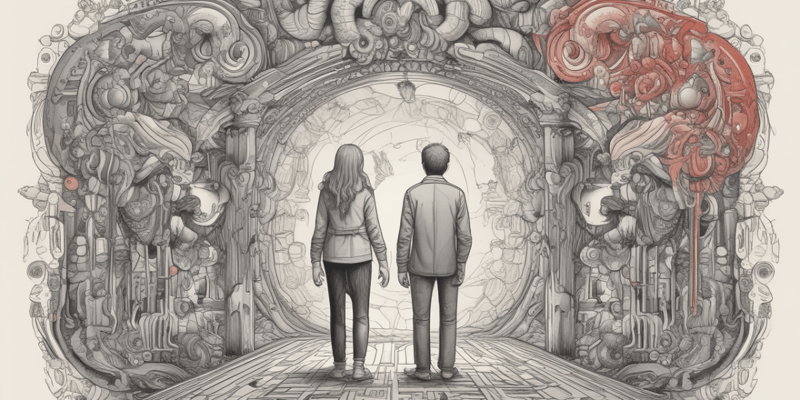Questions and Answers
the process by which the actions of an individual or group affect the behavior of others
Change in behavior or attitudes brought about by a desire to follow the beliefs or standards of other.
conforming to an expectation or a request without really believing what you are doing
occurs when you genuinely believe in what the group has persuaded you to do
Signup and view all the answers
A study conducted where independently participants' perception of the movement of the light, significantly differ, but when they came together, their answers converged to the norm
Signup and view all the answers
produces conformity when a person believes others are correct in their judgments
Signup and view all the answers
produces conformity when a person fears the negative social consequences of appearing deviant
Signup and view all the answers
actions or behaviors that go against social norms or expectations
Signup and view all the answers
Changes in behavior that are elicited by direct requests
Signup and view all the answers
a social reaction of approval or disapproval in response to someone's actions
Signup and view all the answers
we treat others as they treated us Positive effect: we repay the kindness of others Negative: sanction retaliation ("an eye for an eye"
Signup and view all the answers
you ask a person to agree to a small request and later ask that person to comply with a more important one/ bigger request
Signup and view all the answers
What phenomena when asking for permission from your mother to hang out at your friends’ house (small request) and later on you asked for money (bigger request)
Signup and view all the answers
we infer our attitudes by observing our own behavior 1st, in the initial request, you see yourself as cooperative 2nd, when confronted with a difficult request, you will respond in ways that will maintain the self-image you made in the initial request
Signup and view all the answers
someone makes a large request, expecting it to be refused, and follows it with a smaller one.
Signup and view all the answers
the second request seems smaller in relation to the initial request
Signup and view all the answers
A two-step compliance technique in which the influencer secures agreement with a request but then increases the size of that request by revealing hidden costs
Signup and view all the answers
LOWBALLING TECHNIQUE WORK when once a people commit, they will justify that decision
Signup and view all the answers
LOWBALLING TECHNIQUE WORK there is a sense of obligation to the person you negotiated with
Signup and view all the answers
A two-step compliance technique in which the influencer begins with an inflated request, then decreases its apparent size by offering a discount or bonus.
Signup and view all the answers
a change in behavior in response to the OB commands of others.
Signup and view all the answers
l concept relating to the tendency for the presence of others to improve a person's performance
Signup and view all the answers
means that the people are not competing, do not reward or punish, and in fact do nothing except be present or co-actors
Signup and view all the answers
Norman Triplett (1898), a psychologist
interested in bicycle racing, noticed that
cyclists’ times were faster when racing together
than when racing alone against the clock. This is an example of?
Signup and view all the answers
Robert Zajonc reconcciled apparently conflicting findings aby proposing that arousal from others' presence strengthens dominant responses (the correct responses only on easy or well-learned tasks)
Signup and view all the answers
Peter Hunt and Joseph Hillery (1973) found that in the presence of
others, students took less
time to learn a simple maze and more time to learn a complex one (just
as the cockroaches do!).
Signup and view all the answers
Why are we
aroused by
the
presence of
others? Nickolas Cottrell’s conclusion: The enhancement of dominant responses is strongest when people think they are being evaluated.
Signup and view all the answers
Sanders et al., (1986) theorized that when people wonder how co-actors are doing or how an audience is reacting, they get distracted
Signup and view all the answers
innate social arousal mechanism mere presence of others produces some arousal even without evaluation apprehension or arousing distraction
Signup and view all the answers
which describes the tendency for individuals to lower their productivity when in a group
Signup and view all the answers
participants working in groups exert less effort than participants working individually occurs when people are not accountable for their individual efforts
when people belief that their individual efforts were measured discouraged social loafing
Signup and view all the answers
“a complex process in which a series of
social conditions lead to changes in perception of self and of other
people,
” so that
“behavior that is normally restrained and inhibited is ‘released’ in
violation of established norms of appropriateness”
Signup and view all the answers





